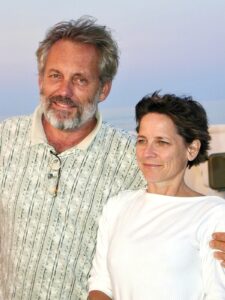By Christopher Koenig and Felicia Coleman
When we started presenting the results of our research on goliath grouper ecology to the Florida Fish & Wildlife Conservation Commission (FWC) over a decade ago, we found that none of the commissioners had any background in science or in wildlife management.
So when the commission opened discussions to have a limited fishery for goliath grouper, a species that has been protected since 1990 and remains vulnerable to extinction, several of us published a peer-reviewed essay summarizing all the data relevant to goliaths in Florida to help them out.
We sent the publication to the commissioners several times, once including an endorsement of nearly 100 respected scientists and conservationists.
None of that deterred commissioners. Even the research conducted by FWC was dismissed out of hand. There was a similar response (or lack thereof) from the commissioners to science-based means of protecting the Florida black bear population, which consists of roughly 3,000 individuals spread among eight isolated habitats.

Add to this some startling remarks made by commissioners to be less diligent about protecting the endangered Florida panther, with its current population of fewer than 230 individuals. Does this complacency toward science demonstrate simply a lack of interest, an inability to interpret the results, or blind self-interest?
Frankly, it’s probably a little of all of these things. The governors of this state have for many years chosen only contractors, developers, lawyers, and of course, their donors to make critical decisions about the conservation and management of Florida’s natural resources.
Let’s think about whether that makes sense. Would you hire an electrician to do your plumbing, or a plumber to build your house? Of course not, because you want people who are trained to do the specific job you want done. So why not include biological scientists, conservationists, and naturalists on the commission?
Perhaps because the governors seek appointees who will help push their political objectives when science and politics are at odds, and then there follows the quid pro quo.
In such cases, the science is ignored repeatedly, as demonstrated by Chairman Rodney Barreto who has a development record that one might think would make him blush and certainly ineligible for a spot on the commission. This Palm Beach Post editorial about Barreto’s plans to develop ecologically sensitive submerged lands in South Florida is enlightening.
At the very least, the commissioners should be held to the requirement that they use the best available science to inform their decisions. Even that would prove a boon to Florida’s wildlife and embattled ecosystems.
Without it, we will see only continued erosion of nature. One need only look to the problems associated with poor water management, eutrophication and red tide events and a continued decline in recreational and commercial fishing opportunities in the state called by the tourist industry, “The Fishing Capital of the World.”
This goes beyond protection for the goliath groupers, black bears, and Florida panthers, which represent only three of the thousands upon thousands of other ecologically and economically important native species affected by uninformed policy decisions. What a disgrace!
We hope that taxpayers who value Florida’s natural resources and who trust that intelligent decisions will be made to preserve and, in some cases restore, our precious ecosystems and wildlife are not fooled by these commissioners.
We urge any taxpayer who is interested in the well-being of Florida’s natural environments and species to express their disapproval of these kinds of appointments to the current and the next governor of Florida.
We urge any taxpayer who is interested in the well-being of Florida’s natural environments and species to express their disapproval of these kinds of appointments to Gov. Ron DeSantis (email: GovernorRon.Desantis@eog.myflorida.com; or via the mail: Executive Office of Gov. Ron DeSantis, 400 S. Monroe St., Tallahassee, FL 32399.)
Christopher Koenig, PhD, is a marine biologist and retired Florida State University research faculty. Felicia Coleman, PhD, is a marine biologist. She retired from the Florida State University Coastal and Marine Laboratory as research faculty and Director of the lab. They live in Crawfordville, Fla.
“The Invading Sea” is the opinion arm of the Florida Climate Reporting Network, a collaborative of news organizations across the state focusing on the threats posed by the warming climate.



